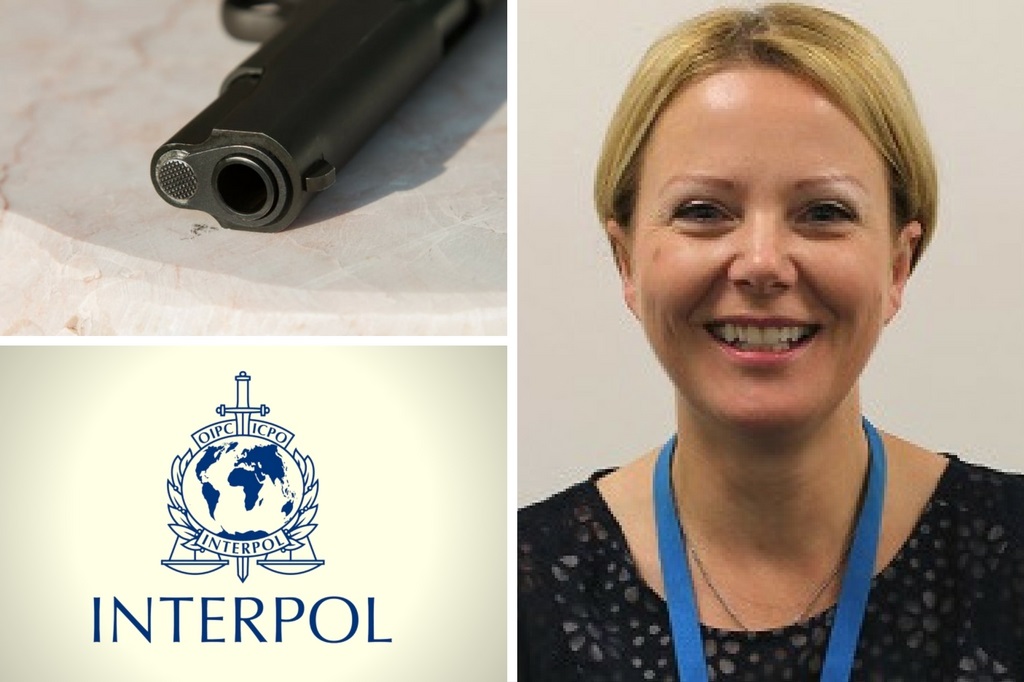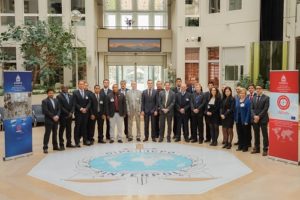The University academic at forefront of Interpol’s anti-terrorism policy
Date 15.11.2016
15.11.2016
Dr Helen Poole, Deputy Dean of Faculty of Health and Society and an expert in criminal justice, has just returned from France where she met with law enforcement representatives from across the globe to discuss the movement of illicit firearms.
The meeting at Interpol Headquarters in Lyon formed part of Interpol’s Illicit Arms Records and Tracing Management System (iARMS) working group, an EU funded project which uses state of the art technology to trace the global movement of firearms and weapons across countries and continents. The iARMS project provides a centralised system for law enforcement agencies to report and query lost, stolen, trafficked or smuggled firearms, in order for agencies to trace them.
Dr Poole attended the meeting to share an academic perspective on the group’s work. She explained: “Interpol’s firearms programme aims to increase the global use of the system in order to increase its effectiveness, and this is where academic research can make a contribution. Through evaluating the impact of the programme and highlighting good practice, the profile and benefits of the system can be better understood by agencies.“
“The system traces the movement of firearms and weapons that might be used in organised crime and terrorism. Last year’s terrorist attacks in Paris for example, were facilitated by firearms that were reported to have moved through Europe from the post-conflict Balkan region.”
Dr Poole’s involvement in the project builds on her previous work into gun enabled crime. She recently co-led the EU funded Project Effect which examined the nature and extent of gun enabled crime across Europe, and utilised ballistics intelligence to evidence the movement of firearms across the region. Findings and recommendation from the report were presented to the European Union in May 2016. She added: “I am currently in discussions about how the University of Northampton can work with Interpol to increase the use of iARMS through the development of a robust evidence base regarding its effectiveness.”

Pictured: the iARMS working group after their recent meeting.